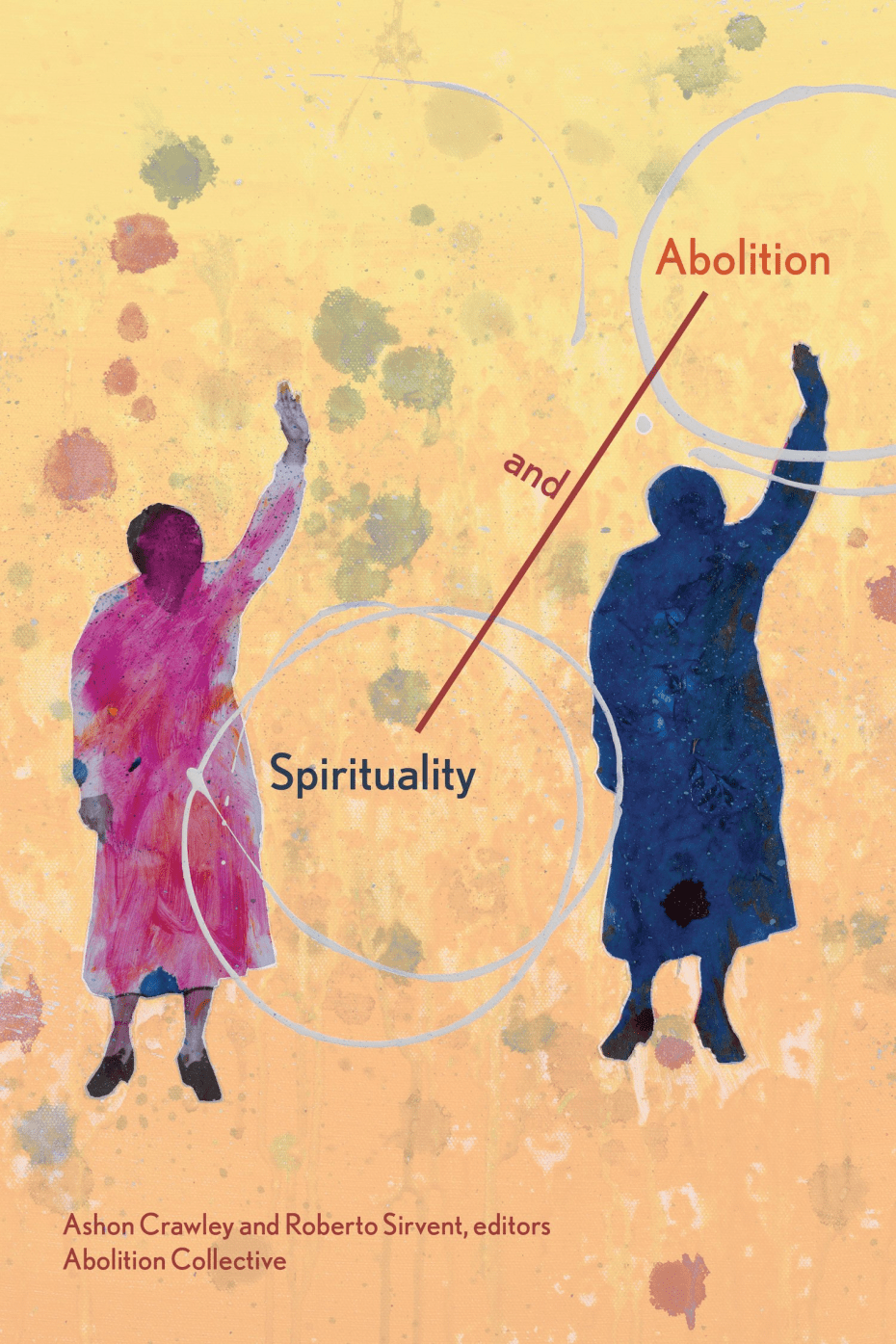"Abolition requires that we change one thing, which is everything. When one says prison abolition, one cannot be talking about only prison. . . . It's building the future from the present in all the ways we can." —Ruth Wilson Gilmore
Often, when a pre-ordered book is going to arrive, I carve out a morning or evening to let myself be enveloped by the ideas, passion, and stories within, then I can plan a more sustained engagement. This is the case with fiction and non-fiction. Life takes a backseat to new books; or rather, books can be traveling companions for life. Spirituality and Abolition, published by Common Notions, and edited by Ashon Crawley, Robert Sirvent, and the editors of the Abolitionist Collective, arrived today. I put edits on hold, my phone on "do not disturb," and finished my house chores to see where this book, and the multiple essays within, take me.

"Spirituality and Abolition asks: what can prison abolition teach us about spiritual practice, spiritual journey, spiritual commitment? And, what can these things underscore about the struggle for abolition as a desired manifestation of material change in the worlds we currently inhabit? Collecting writings, poetry, and art from thinkers, organizers, and incarcerated people, the editors trace the importance of faith and spirit in our ongoing struggle towards abolitionist horizons."
Organized in three sections, "Practice," "Testimony," and "Black Spiritual Study," the introduction is a dialogue between the editors, sharing experiences as a Chaplain and academic in training with abolition and abolitionist theory, and concluding that "abolition is a spiritual journey." As they explain, "we are attempting to make clear our arrival to abolition as a practice and conviction by discussing the relationships, the successes, the failures, that made such imagination irresistible…Abolition is spirituality precisely because it is a seeking for connection against the horizon, its thrust, of borders and enclosures and arrests."
The two essays I was first oriented towards were/are "Reversing the Fragmentation: Searching for an Abolitionist Spirituality, by Jared Ware – who is the co-host of the podcast Millenials are Killing Capitalism; and The Abolition of Hell: Abolitionists Interpretations of Jesus' Descent into Hell," by Hannah Bowman, "a graduate student in the M.A. in Religious Studies program at Mount Saint Mary's University, Los Angeles, and the founder and director of Christians for the Abolition of Prisons (christiansforabolition.org)."
As someone who grew up in the church, attending Catholic school with nuns in a convent, and reading the Bible thoroughly and often in mass, catechism, and seventh-period religion class, the engagement with scripture, hermeneutical arguments of interpretation, and the politics of creating a society that does not rely on prisons as punishment, is fascinating and inspiring. The essays got me thinking of a re-write of Dante's Inferno, where Virgil starts an abolitionist rebellion in one of the circles of Hell. Perhaps creative and decentralizing artists could commission a collective redoing of Gustave Doré's prints.
Common Notions books is a collective "deeply committed to publishing books that provide timely reflections, clear critiques, and inspiring strategies that amplify movements for social justice. Our publishing program reflects the lessons we've learned as members of #blacklivesmatter, the New Sanctuary Movement, anticapitalist organizations, the antiwar movement, climate justice, and Palestinian struggle. We are based in the Interference Archive in Brooklyn, NY; and at Making Worlds Bookstore and Social Center in Philadelphia. We often collaborate with editorial houses, political collectives, militant authors, and maverick designers around the world."
Abolition: A Journal of Insurgent Politics "is a collectively-run project supporting radical scholarly and activist ideas, poetry, and art, publishing and disseminating work that encourages us to make the impossible possible, to seek transformation well beyond policy changes and toward revolutionary abolitionism." The journal's previous publications include Abolishing Carceral Societyand Making Abolitionist Worlds: Proposals for a World in Fire.
Check out Abolitionist Manifesto here.





